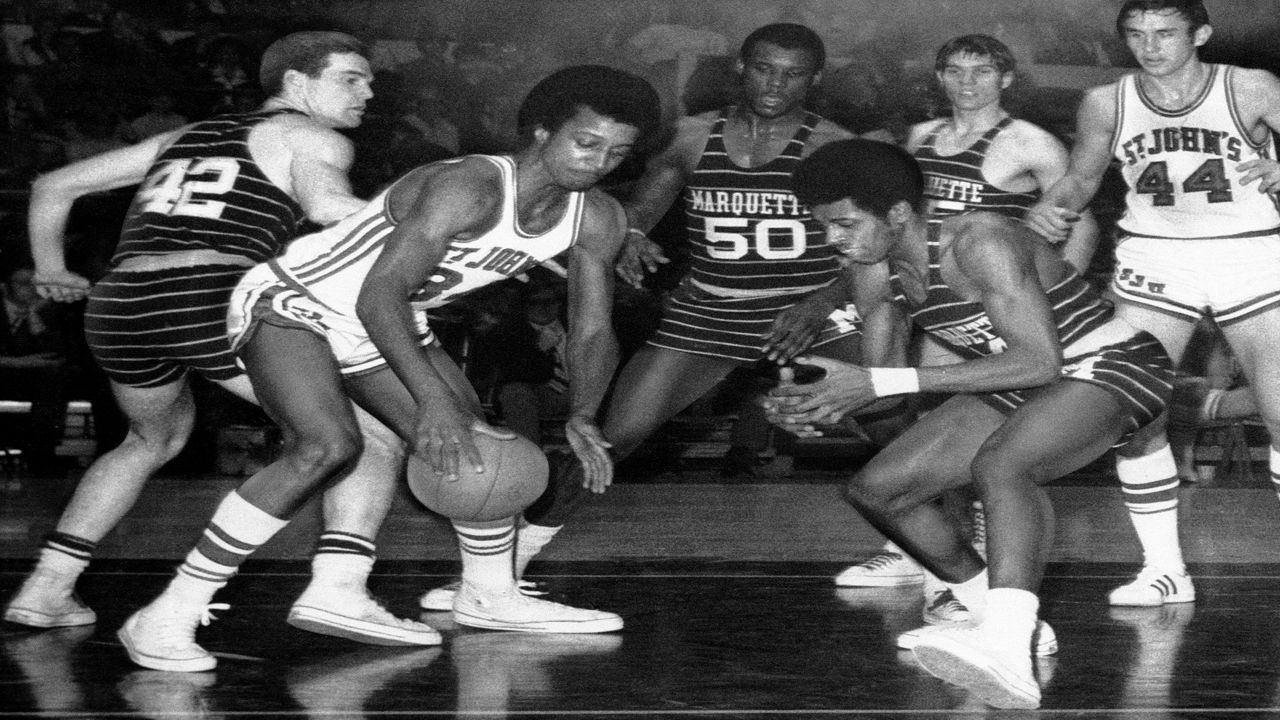It seems almost impossible. Being offered an NCAA tournament bid but turning it down. That's exactly what Al McGuire and Marquette did in 1970. Even more remarkably, only 25 teams made the NCAA tournament at that time. It was an exclusive club.
Marquette had lost only three games all season and was ranked in the top ten of both major polls heading into the postseason. Notre Dame had lost six games and was ranked below Marquette. In fairness, it should be noted that Notre Dame beat Marquette by one point in South Bend during the regular season.
McGuire told me in a 1992 interview for WTMJ-TV: "I might be looking at things my way, obviously. We belonged in the (Mideast Regional in Dayton). Notre Dame belonged in (Texas), not us. When they said 'go down to (Texas)', I said no."
Longtime MACC Fund executive John Cary was a freshman manager in the basketball program in 1970. He remembers McGuire telling him "I want everyone in the locker room in twenty minutes."
Cary says when McGuire shared his plans to go to the NIT with the players "they were stunned. Are you kidding me?" McGuire told the seniors they'd get more visibility playing in New York in the NIT than they would have in an NCAA Regional in Lawrence, Kansas.
At a time when college campuses were filled with unrest over Vietnam, McGuire's move was interpreted by some as anti-Establishment and "sticking it to the man."
Kentucky's Adolph Rupp, who Marquette had beaten in the NCAA tournament the year before in Madison, offered his thoughts: "I think anytime the NCAA invites you to a tournament, they're doing you a great honor."
McGuire didn't care for Rupp and wanted to face him again in the Mideast Regional. Reverting to his New York, street fighter personality, Al responded: "If you slap me, I punch you."
In 1992, McGuire said going to the NIT, "looking back, was a big mistake, because we had to win the NIT. If we didn't win the NIT, we would have really looked very, very foolish."
McGuire said he was surprised Marquette didn't get an easier path in the NIT.
"We were in the top ten in the country and it was a marquee for them. I think it was also the opening of their new Madison Square Garden...We were starting out playing the University of Massachusetts. I figured, well, piece of cake. They're settin' us up. We've done them, supposedly, a favor and hurt ourselves a little bit. So we go in there and getting close to halftime, we're winning 27-23 and I say to Hank Raymonds; 'who is that guy?' It was Dr. J. A sophomore. The famous Julius Erving." Marquette survived by seven. In his autobiography, Erving credits the second half defense of Ric Cobb for getting him in foul trouble.
After dispatching of Utah, Marquette faced "Pistol" Pete Maravich and LSU in the tournament semifinals. Marquette prevailed, 101-79. McGuire recalled about Maravich: "We kinda just put a combo on him. You can stop anybody."
LSU coach Press Maravich (Pete's dad) said: "playing defense is as exciting as watching grass grow." Marquette player Gary Brell countered: "I think we can cut his grass."
In the championship game, Marquette defeated McGuire's alma mater, St. John's, 65-53. "Dean (Meminger) got the Most Valuable, but Ric Cobb, "the Elevator Man" put in an outstanding performance. Outstanding. Jeff Sewell also," according to McGuire.
The tournament featured Marquette's colorful "bumblebee" uniforms. McGuire was on the board at Medalist Industries and loved to display their work in uniforms. The uniform was later banned for its "disorienting" effect on opponents.
McGuire told me his smarts did not come from books. "A lot of people give me more credit for more intelligence than I have. My only intelligence is street smarts. I'm a Rhodes Scholar of common sense. I'm not an intelligent person, what the world looks like as intelligent."
His decision to take Marquette to the NIT in 1970 was gutsy. Certainly a risk. It's hard to argue with the results 51 years later.



